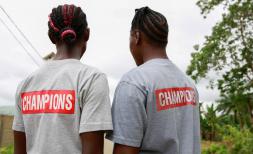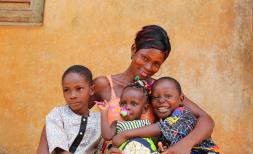Three lessons I’ve learned about kindness from colleagues across the globe
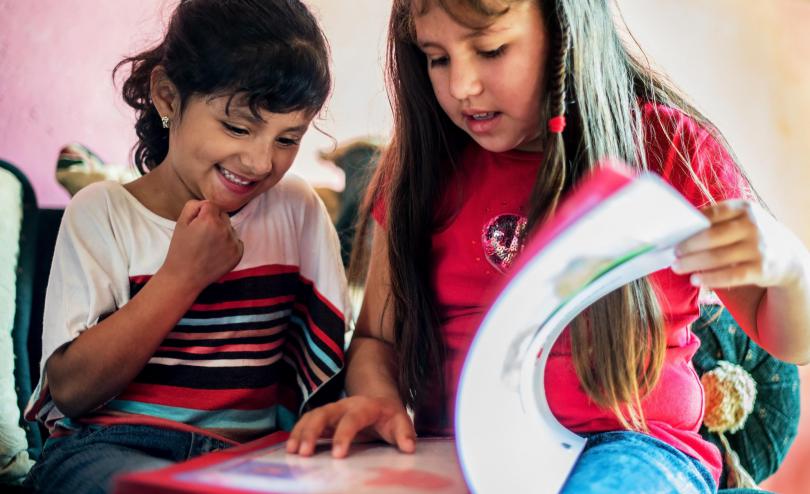
Over a decade ago, I was working at the World Bank when a young colleague, a good friend of mine, suddenly fell into a coma and needed a heart transplant. I will never forget how the Senior Vice President rallied the entire department to support the staff member. It made me feel part of a compassionate community in a large bureaucracy. Ever since, I have looked for examples of compassion and kindness in organisations and to the growing body of research and evidence on the importance of leadership to nurture organisational culture.
Based on my own experiences in Save the Children over the past decade, I have learned three key lessons from my colleagues across the globe, and suggest that they can help leaders to build and nurture an organisational culture of kindness and a sense of community:
- Communicate acts of compassion and kindness among staff:
In February 2018, I was on a program visit in Santa Cruz del Quiché, in central Guatemala, reviewing our programs focused on increasing nutritional outcomes of school children by improving the cooking habits of the community and schools. At the end of the visit, our local colleagues handed us an envelope full of quetzal, the local Guatemalan currency. "We've collected this money among ourselves. Please give this to the families of our Afghan colleagues." A month earlier, four Afghan colleagues had tragically been killed in an IS terror attack on our field office in Jalalabad, Afghanistan. There was an outpouring of emotion and compassion from our staff and thoughts given to the several children who had lost a parent that day. While the family received emotional and financial support from the organisation, our staff wanted to do more.
Together with my senior leadership team colleagues, we started a fundraising effort that spread throughout Save the Children and our global staff quickly collected almost $30k, to ensure those children continued and finished their education. I was moved to see this amount of solidarity and compassion in a field office 14000 kilometres away from Afghanistan and it stayed with me. Since our return from Guatemala I've kept sharing this act of compassion widely internally and externally. The country director leading the team in Afghanistan said in April 2018 that the global support "really boosted our morale and kept us going."
Examples like these exist in every organisation and leaders need to have their ear out for them and tell them widely to nurture a culture that gives clarity to the behaviour that an organisation’s culture should be made of.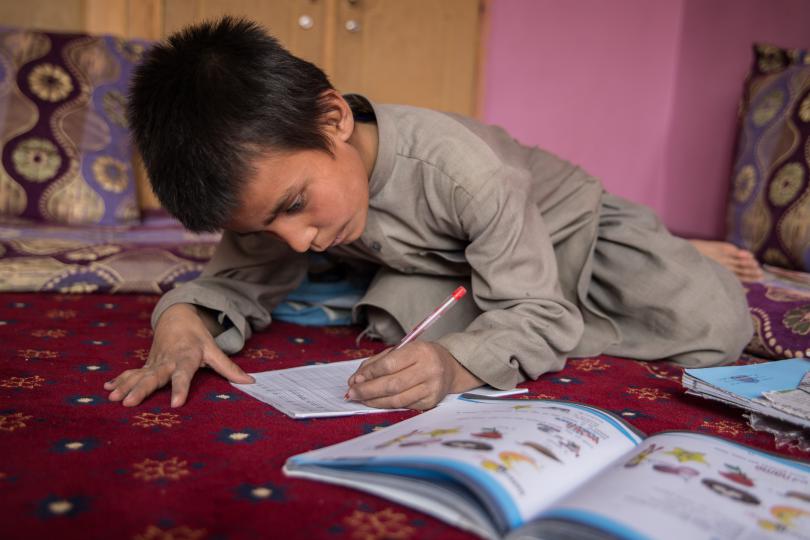
- Tell the stories of hardship employees face in their daily work:
In August 2019, during a visit to a government internment camp for the Muslim Rohingya minority in Northern Myanmar, we met a female colleague who organises schooling for children. We interrupted the visit schedule to sit down with her and listen to her story. She told us that she had been imprisoned in this camp for the last 8 years after her mother was killed and herself and her siblings, a family of seven, were forced to move into this internment camp a few kilometres away from where she grew up. Given that she was not allowed to leave and had no access to the internet, we got her consent to post her picture and her story in our internal Facebook, called Workplace, for all 25000 staff to see.
Colleagues from all over the world responded and sent her messages of support. At the December Save the Children International Board meeting we presented her story to underline the organization's servant leadership culture that we are all, and particularly senior leaders, are working to serve staff like her. Back at the field office in Myanmar staff printed out the messages of support and carried them into the internment camp. Our colleague responded that she was "deeply grateful and sends her thanks."
In times of COVID-19, stories of individual hardship in an organisation can serve to emphasize compassion among staff and further a servant leadership culture beyond religion and ethnicity. And while this is an extreme case, every organisation has staff who are facing risks and challenges every single day.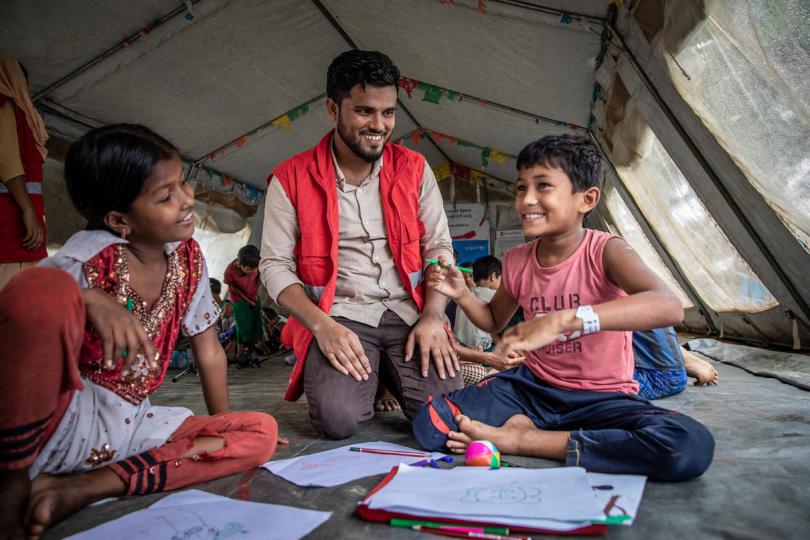
- Mourn the loss of colleagues together beyond borders:
In January 2021, a close and long-time colleague from South Africa died from COVID-19. The news shook all of us who had worked with him to the core. He had led our organisation's security work in countries, regions, and globally over more than a decade. Everyone who knew him spoke of the "gentle giant" who made you feel safe even in challenging security situations.
When the news of his passing was shared, hundreds of staff from around the world posted messages of condolences to his family on our internal Workplace page. His manager worked closely with our colleague's family, his wife and three young children, to organise a virtual memorial service that staff and ex-staff could attend. This enabled hundreds of Save the Children colleagues from across the globe to join at different time zones to attend, and speakers from the senior leadership team, to Nigeria, Afghanistan, Sri Lanka, and many others places to speak. A colleague from Kenya recorded a song and a video, others recited poems and told stories of how they met. A fundraising site was set up by Save the Children South Africa to support programs for those disadvantaged children our colleague had cared for a lot. His family members told us that through this experience, they now understood that he had a second, global family that he cared for as much as he did for his own and who cared for him.
To create these spaces for people from across the globe to get together takes very little effort given our connectivity and social networks, but it can make a big difference to how staff feel connected beyond borders for a common cause.
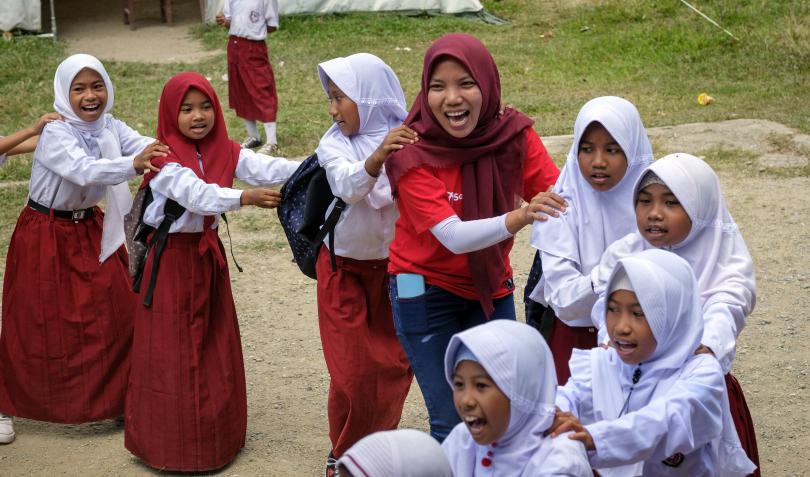
As a result of COVID-19, almost every organisation faces hardship, loss, and crisis in some shape or form. These three lessons can help leaders become aware and actively listen for their colleagues' kindness and compassion. Applying them can build staff engagement, a sense of belonging, and spread energy way beyond the workplace. This proves Maya Angelou, the American poet and civil rights activist, right that "People will forget what you said, people will forget what you did, but people will never forget how you made them feel."

